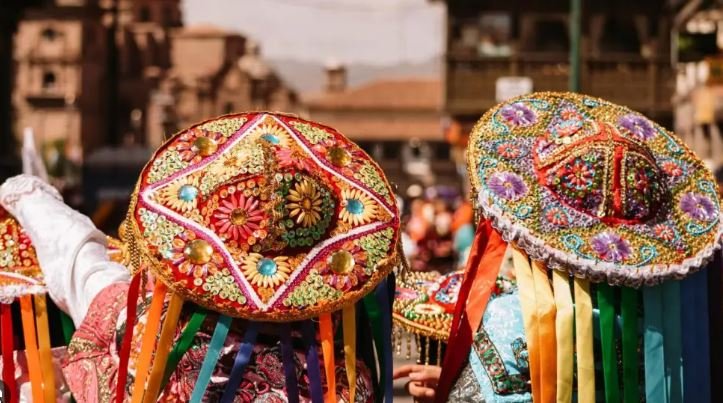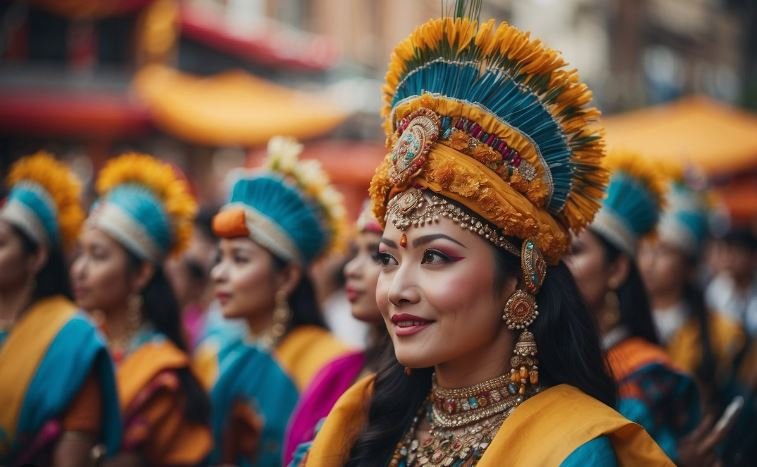Traditional festivals around the world celebrate the rich tapestry of global cultures, offering a glimpse into diverse customs, beliefs, and historical traditions. These festivals, deeply rooted in local history, bring communities together and create a vibrant display of cultural heritage. By exploring these celebrations, one gains an appreciation for the uniqueness of each culture and the common threads that unite us.

Festivals Celebrating Historical and Religious Traditions
Many traditional festivals revolve around historical events or religious observances, providing insight into a community’s values and beliefs. For instance, Diwali, known as the Festival of Lights, is a major Hindu celebration marking the victory of light over darkness and good over evil. During this festival, families light oil lamps, exchange gifts, and share festive meals.
Similarly, Christmas, celebrated on December 25th, commemorates the birth of Jesus Christ. This festival, observed by Christians worldwide, involves various customs such as decorating Christmas trees, exchanging gifts, and participating in church services. Both Diwali and Christmas highlight how religious traditions shape the way festivals are celebrated and how they foster a sense of community.
Cultural Festivals Showcasing Local Traditions
Cultural festivals often highlight the unique traditions and practices of a particular region. For example, the Carnival of Rio de Janeiro in Brazil is renowned for its vibrant parades, samba music, and elaborate costumes. This festival, held before Lent, is a celebration of Brazilian culture and is famous for its lively atmosphere and artistic performances.
In Japan, the Cherry Blossom Festival, or Hanami, marks the arrival of spring and celebrates the beauty of cherry blossoms. During this festival, people gather in parks to view the blooming flowers, enjoy picnics, and participate in traditional Japanese activities. Such cultural festivals offer a window into the local customs and aesthetics of different regions.
Festivals Highlighting Agricultural and Seasonal Changes
Agricultural festivals celebrate the changing seasons and the harvest, reflecting the importance of agriculture in many cultures. For instance, Oktoberfest in Germany is a famous beer festival that originated as a royal wedding celebration and has evolved into a global event. It celebrates Bavarian culture with traditional music, food, and, of course, a variety of beers.
In the United States, Thanksgiving is a holiday that originated from early colonial harvest celebrations. It is a time for families to gather, give thanks, and enjoy a feast that typically includes turkey, stuffing, and pumpkin pie. These festivals underscore the connection between seasonal changes and cultural traditions.
Festivals Promoting Unity and Social Causes
Some traditional festivals aim to promote unity and raise awareness about social causes. For example, the Holi Festival in India, also known as the Festival of Colors, celebrates the arrival of spring and the triumph of good over evil. Participants throw colored powders at each other, symbolizing the breaking down of social barriers and the joy of unity.
Similarly, the International Women’s Day, celebrate on March 8th, is not a traditional festival per se but is recognize globally as a day to honor women’s achievements and advocate for gender equality. Such festivals and observances emphasize the role of social causes in shaping cultural celebrations and fostering solidarity.
Festivals Embracing Art and Creativity
Artistic and creative expression is often at the heart of traditional festivals. The Venice Carnival in Italy, for instance, is famous for its elaborate masks and costumes, allowing participants to embrace creativity and artistic flair. This festival, with its roots in the medieval period, is known for its masquerade balls and theatrical performances.
The Edinburgh Festival Fringe in Scotland is another example of a festival celebrating creativity. It is the world’s largest arts festival, featuring a diverse range of performances, including theater, comedy, music, and dance. This festival highlights the importance of artistic expression in cultural celebrations.
Challenges in Preserving Traditional Festivals
While traditional festivals are a valuable part of cultural heritage, preserving them can be challenging. Factors such as modernization, globalization, and changing social dynamics can impact traditional practices. For instance, urbanization and technological advancements can alter how festivals are celebrated or lead to a decline in traditional practices.
Efforts to preserve traditional festivals often involve community engagement, education, and cultural promotion. By fostering awareness and appreciation of these festivals, communities can ensure that their cultural heritage continues to be celebrate and pass down to future generations.
Conclusion
Traditional festivals around the world offer a rich tapestry of cultural heritage, showcasing the diverse traditions and values of different communities. Whether celebrating historical events, local customs, agricultural changes, or artistic expression, these festivals bring people together and provide a window into the heart of each culture. Embracing and preserving these traditions allows us to celebrate the richness of our global heritage and connect with the shared human experience.



